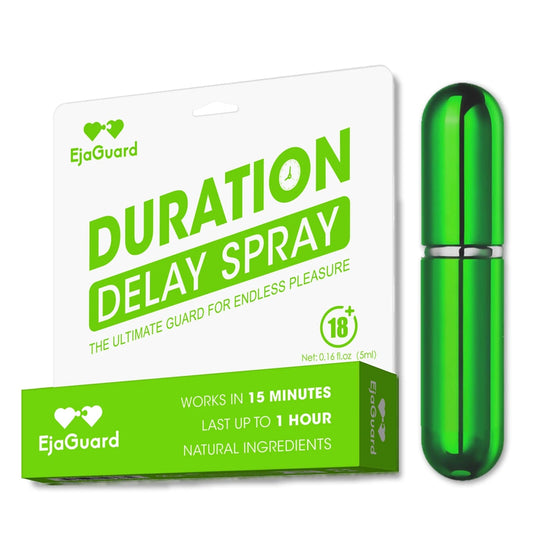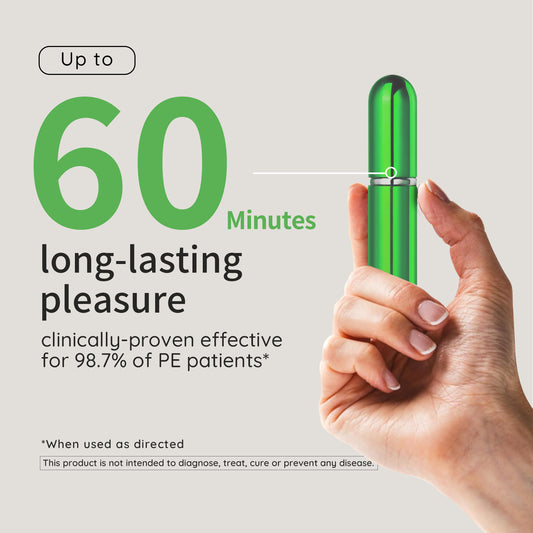Wie Folsäure Ihnen hilft, schwanger zu werden: Vorteile, Dosierung und Fruchtbarkeitstipps
Was ist Folsäure?

Folsäure, auch bekannt als Vitamin B9, ist ein essentieller Nährstoff für den menschlichen Körper. Es unterstützt die Bildung neuer Zellen und ist für die DNA-Synthese unerlässlich. Obwohl jeder Mensch Folsäure benötigt, sollten Frauen mit Kinderwunsch besonders auf ihre Folsäurezufuhr achten.
Folsäurepräparate tragen dazu bei, dass Frauen vor und während der Schwangerschaft einen ausreichenden Folsäurespiegel haben. Dies unterstützt ihre allgemeine Gesundheit und die Gesundheit ihres zukünftigen Babys.
Um Ihr allgemeines Wohlbefinden während der Empfängnis weiter zu unterstützen, können Sie auch fruchtbarkeitssteigernde Produkte wie das EjaGuard Orgasm Gel ausprobieren, das die Sensibilität und Intimität steigern soll.
Warum ist Folsäure für eine Schwangerschaft wichtig?

Viele fragen sich, ob Folsäure dabei hilft, schwanger zu werden. Die kurze Antwort lautet: Ja. Dieses Vitamin spielt eine entscheidende Rolle bei der Vorbereitung des weiblichen Körpers auf die Empfängnis.
Folsäure hilft:
-
Regulieren Sie den Eisprung.
-
Stärken Sie die Gesundheit der Eier.
-
Bereiten Sie die Gebärmutter auf die Embryoimplantation vor.
Darüber hinaus verringert es das Risiko von Neuralrohrdefekten beim Baby, wie beispielsweise Spina bifida. Dies macht Folsäure zu einem unverzichtbaren Verbündeten für Frauen, die schwanger werden möchten.
Frauen, die zusätzliche Unterstützung für den Eisprung und die reproduktive Gesundheit suchen, könnten eine Kombination aus Folsäure und dem Delay Spray von EjaGuard in Betracht ziehen, das für seine Verbesserung der sexuellen Leistungsfähigkeit und des Selbstvertrauens bekannt ist.

Wissenschaftliche Erkenntnisse: Folsäure und Fruchtbarkeit
Mehrere Studien belegen den Zusammenhang zwischen Folsäure und Fruchtbarkeit. Untersuchungen zeigen, dass Frauen, die Folsäurepräparate einnehmen, eine höhere Empfängnisrate aufweisen.
Eine in Fertility and Sterility veröffentlichte Studie ergab, dass bei Frauen, die täglich Folsäure einnahmen, das Risiko einer ovulatorischen Unfruchtbarkeit um 40 % geringer war.
Obwohl Folsäure keine Schwangerschaft garantiert, sind ihre positiven Auswirkungen auf die reproduktive Gesundheit unbestreitbar.
Für Frauen, die ihre Fruchtbarkeit auf natürliche Weise steigern möchten, kann die Kombination von Folsäurepräparaten mit Selbstbefriedigungshilfen wie EjaGuard-Masturbatoren das sexuelle Wohlbefinden und das Körperbewusstsein steigern.
Empfohlene Dosierung von Folsäure

Die empfohlene Standarddosis für Frauen im gebärfähigen Alter beträgt 400 bis 800 Mikrogramm (µg) täglich. Diese Menge deckt den Grundbedarf und trägt dazu bei, das Risiko von Geburtsfehlern zu verringern.
Bei Frauen, die eine Schwangerschaft planen oder bereits schwanger sind, kann die Dosierung unter ärztlicher Aufsicht angepasst werden. In einigen Fällen wird eine tägliche Dosis von bis zu 1 mg empfohlen.
Wenn Sie eine Schwangerschaft planen, kann die Verwendung einer Kombination aus Folsäure und Intim-Wellness-Produkten wie EjaGuard-Gleitmitteln zu einem gesünderen und angenehmeren Sexualerlebnis beitragen.
Wann sollte man mit der Einnahme von Folsäure beginnen?
Idealerweise sollten Frauen mindestens drei Monate vor dem Kinderwunsch mit der Einnahme von Folsäure beginnen. So kann der Körper optimale Werte erreichen.
Wenn Sie bereits versuchen, schwanger zu werden, und noch nicht mit der Einnahme begonnen haben, sollten Sie so bald wie möglich damit beginnen. Folsäure ist sicher und wird von Gynäkologen und Fruchtbarkeitsexperten häufig empfohlen.
Lebensmittel, die reich an Folsäure sind
Außer durch Nahrungsergänzungsmittel können Sie Folsäure auch aus folgenden Lebensmitteln beziehen:
-
Blattgemüse (Spinat, Mangold)
-
Hülsenfrüchte (Linsen, Kichererbsen)
-
Zitrusfrüchte (Orangen, Zitronen)
-
Nüsse (Walnüsse, Mandeln)
-
Angereichertes Getreide
Der Verzehr dieser Lebensmittel trägt dazu bei, einen gesunden natürlichen Folatspiegel aufrechtzuerhalten.
Häufige Mythen über Folsäure und Schwangerschaft

Mythos 1: Folsäure braucht man nur während der Schwangerschaft.
Realität: Es ist vor und während der Schwangerschaft unerlässlich.
Mythos 2: Folsäure führt zu Gewichtszunahme.
Realität: Es gibt keine Beweise dafür, dass Folsäure mit Gewichtszunahme in Zusammenhang steht.
Mythos 3: Eine gesunde Ernährung macht Nahrungsergänzungsmittel überflüssig.
Realität: Eine ausgewogene Ernährung hilft zwar, Nahrungsergänzungsmittel sorgen jedoch für die richtige Dosis.
Häufig gestellte Fragen
Hilft Folsäure dabei, schneller schwanger zu werden?
Ja, es kann die Eizellenqualität und die Einnistung verbessern und so Ihre Chancen erhöhen.
Wie lange sollte ich vor einer Schwangerschaft Folsäure einnehmen?
Es wird empfohlen, mindestens drei Monate vor dem Versuch, schwanger zu werden, damit zu beginnen.
Kann ich Folsäure ohne Rezept einnehmen?
Ja, aber am besten konsultieren Sie einen Arzt, um die ideale Dosierung zu bestimmen.
Ist Folsäure dasselbe wie Folat?
Folat ist die natürliche Form in Lebensmitteln; Folsäure ist die synthetische Form in Nahrungsergänzungsmitteln.
Letzte Tipps zur Verbesserung der Fruchtbarkeit
-
Ernähren Sie sich ausgewogen und reich an essentiellen Nährstoffen.
-
Halten Sie ein gesundes Gewicht.
-
Treiben Sie mäßig Sport.
-
Vermeiden Sie übermäßigen Stress.
-
Konsultieren Sie bei Bedarf einen Fruchtbarkeitsspezialisten.
Folsäure ist ein entscheidender Teil des Fruchtbarkeitspuzzles.
Abschluss
Folsäure unterstützt wichtige Funktionen des weiblichen Fortpflanzungssystems und beugt Entwicklungsstörungen des Fötus vor. Wenn Sie planen, Mutter zu werden, sollten Sie sofort mit der Einnahme beginnen.
Konsultieren Sie Ihren Arzt und beginnen Sie noch heute mit der Nahrungsergänzung. Achten Sie darauf, dass Ihre Ernährung folatreiche Lebensmittel enthält und nehmen Sie bei Bedarf Nahrungsergänzungsmittel ein.
Machen Sie sich bereit für die wunderbare Reise zur Mutterschaft!
 Buy Now
Buy Now



